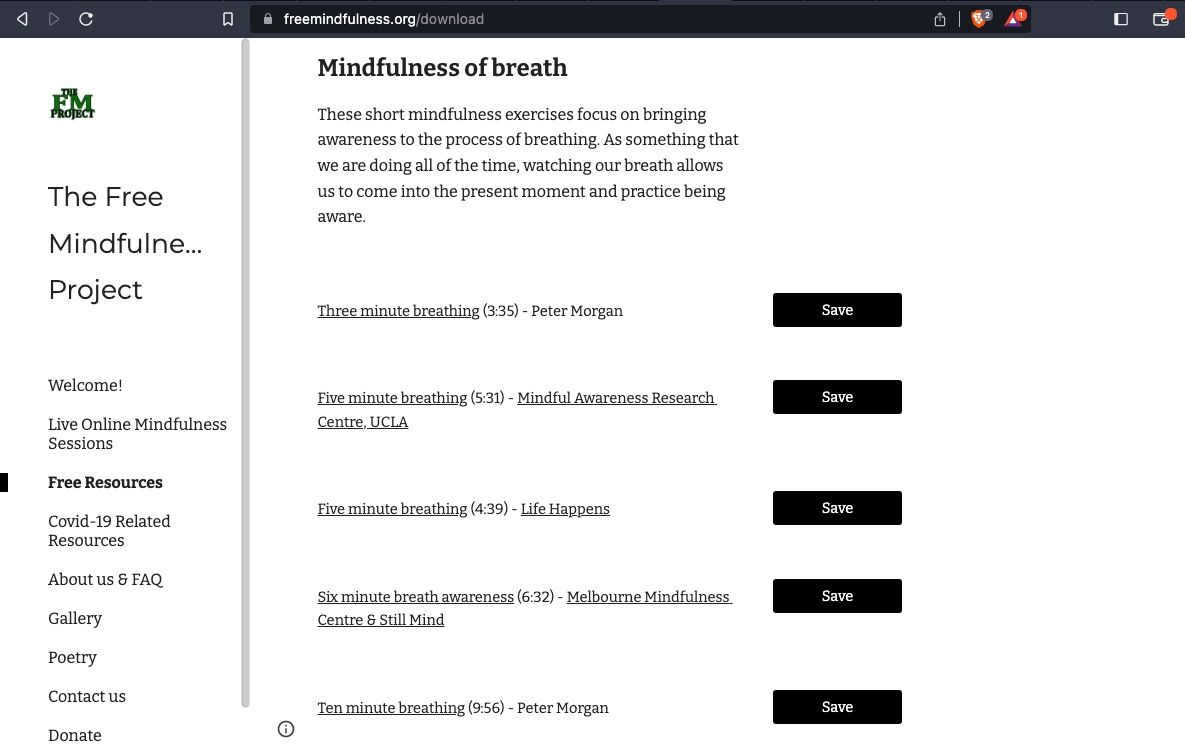While the stigma around mental health is gradually reducing, you may struggle to find tangible ways to improve your mental well-being. Nowadays, you can find many emerging and experimental therapies that seemingly offer quick ways to remove negativity from your life. It is hit or miss whether they actually benefit you.
In all the confusing mess of business-oriented therapy—where many therapists do not practice what they preach—technology can be a vital tool. Use it well, and you may just shed the weight of your past and help your traumas heal into healthy scars.
Use the Internet to Research Key Influences on Mental Health
Despite the increasing focus on mental health in the present, there is still a lack of high-quality mental health content in the education sector and wider society. Most people are then reactive to mental health-related experiences rather than applying preventive measures.
Fortunately, there are very valuable resources that you can access via the internet that can help you understand what causes mental suffering and what can be done to improve it.
If you are unsure where exactly to start researching, it's always a good idea to go back to your origins; try researching the influence of childhood traumas as described in an article on Exploring your mind. Automatic defense mechanisms during childhood can often hide away painful experiences. You may need to uncover and reintegrate them to liberate your present from damaging behavioral patterns.
Also, you can read what major figures in modern psychology—Sigmund Freud and Carl Jung—and other experts have to say about trauma and healing in the form of books or online articles. While you may want to limit how Google tracks and stores your data, use specific Google search queries to learn valuable information regarding mental health.
In this way, the at times, stressful uncertainty that comes with mental health can slowly fade away. Then, you can convert it into actionable knowledge that you can harness for your own mental well-being and that of others.
Use Text-Editing Applications to Write Down Your Feelings
One of the most valuable practices you can do to add clarity to your internal world is to write down your thoughts and feelings. You may not always have pen and paper to hand, and this is where technology comes in.
You can find a variety of paid and free text-editing applications that let you write down your inner monologue and emotions whenever the mood strikes. You can use the free Notes app on iPhone or the TextEdit application on Mac. Sublime Text is another free option, and if you have access to Microsoft Word, you can use that, too.
The value of writing your thoughts down will become apparent the more you do it, as you are essentially putting down seemingly disjointed jigsaw pieces onto the table.
Only when you have multiple pieces laid out on the table can you see that some of them fit together, and some significant gaps still remain. Keep on going, and you may just rediscover and reconnect pieces of yourself.
Find Someone to Talk to About Your Past and Present
If you are ever in doubt about whether to speak of your troubles to another, there's an old saying you should remember: a problem shared is a problem halved. While our ancestors had to rely on carrier pigeons and letters, you can arrange to meet with someone you trust with simply a ping or two from your smartphone or computer.
If you are lucky enough to have people you trust around you, do not give in to feelings of shame or worry about what they may think about you. Make the most of tech, and use your favorite messaging app or social media to reach out and start a conversation. Maybe an in-person meeting is not possible. In that case, use Zoom, FaceTime, or the video call feature most messaging apps offer. Or even tap into the phone app on your smartphone and give them a traditional call.
At times, it isn't necessary that your confidante offers you a solution. When you speak the unspoken, it is an act of truth that forges stronger bonds in your relationship with yourself and, frequently, with others. If you don't have trusted others to share your burdens with, check out some of the best websites to talk about your mental health.
Some experiences are so painful that you may find it impossible to share with others you know. In this case, therapy guided by professionals may be the best option for you.
Sharing and therapy are beneficial to all, no matter how small or big your perceived pain is.
Find the Right Therapy for You
A MedicalNewsToday article outlines some of the many types of therapy available. You may see the numerous options available and feel the paralysis of choice as you don't know which is best for you (while each claims to be the best for your mental health).
Instead of getting locked down in indecision, try a session with a therapist after online research—Google is a useful tool once again—and build your own first-hand experience. Remember that there are high-quality and low-quality professionals within each therapy type. If you're unsure where to start, bear in mind that talking therapies have a significant body of supporting evidence and history.
Another option you should consider is learning and integrating mindfulness practices in your life. A great place to start is The Free Mindfulness Project. Select the Free Resources tab on the website to access guided mindfulness exercises. When you consistently practice mindfulness, you may feel a growing well of peace, awareness, and acceptance within you.
If drawing or painting is one of your creative channels, you can also consider free art therapy apps to alleviate stress. Something else to be aware of is whether your chosen therapy tells you what to think or guides you in your understanding of why you think or do certain things. Removing or substituting negative thoughts is not the same as accepting or understanding them.
Try Online Therapy or Counseling
The internet makes it easier than ever to find an online therapist near you or even therapists continents away. This can benefit you greatly as you can attend sessions from the comfort of your home, and cut out commute times.
Before you jump at the first opportunity for therapy, it is important to check whether the therapist is the professional they claim to be. If not, your personal information could be at risk or worse.
The reality is that anyone can claim to be a therapist or counselor. This makes it important to check whether they have appropriate licenses. Not only does this ensure that they comply with confidentiality practices, but often this can safeguard the needed limits between a patient and therapist.
This extends to the website or application through which online sessions are conducted. You will want to check such platforms are secure before using them.
To check whether a therapist has a valid license, first, use an online search engine to find out which licensing or certification boards operate in your country, city, or state. If the therapist claims to be a psychiatrist or family therapist, you will want to visit the website of the relevant licensing board. Then, search the therapist's name, and you should see information regarding their license, including whether it is active or revoked.
Apply these background checks and look for only the best therapy apps or online therapists. In this way, you can benefit from the opportunity of online therapy.
Mental Healing Isn't a Race; It's a Journey
There are more free and paid resources than ever to expand your understanding of mental health and your inner world. Use the internet to see what experts have to say about trauma and healing. Complement this with text-editing applications to write down your feelings, and build a map of your inner workings.
If you can, share your troubles with trusted others to lessen the load you may be feeling. Then, research online to discover the best therapeutic path for you, and your mental health will benefit in the long term, away from short-term fixes.





